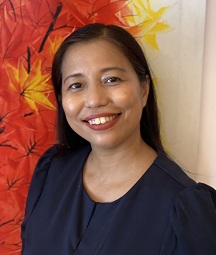December 21, 2021, by Communications
Navigating the return to physical classrooms
The pandemic has undeniably impacted the teaching and learning experience in Malaysia and across the world, pushing all those in the academic industry to pivot and weather a new set of challenges in the transfer of knowledge remotely. Nonetheless, the classroom remains a space for self-discovery, expanding horizons and building friendships, and as we slowly but surely return to physical classrooms in phases, knowing what to expect and how to adapt into the new routine is important for the mental and physical wellbeing of students, educators and members of the administrative staff alike.
Studies have shown that students experienced mental health challenges during the pandemic due to social isolation and added pressure of needing to succeed in their academics. Relate Malaysia found that Malaysian youths reported high levels of anxiety (48%) and depression (45%) at the start of the pandemic. The last two years have undoubtedly been challenging for students and I hope that in shifting to a blend of remote and face-to-face learning, we can help alleviate this pressure from not only our youths, but academic professionals and parents, who have been struggling as well.
Schedule me-time amid work and socialising safely
Returning to physical classrooms can be daunting, even more so that we now have to readapt to a new routine. It’s important that all those returning to face-to-face classes and work are actively scheduling and planning out their day. Getting up early, dressing up, and commuting will be an adjustment. This also allows them to dedicate time for friends, family and most importantly, themselves.
Re-establish boundaries
This new practice of working from home means that we’ve also lost the traditional boundaries of space and time that separate work from rest and play. We find ourselves working longer hours, in some cases more than our bodies have the capacity for. A good night’s sleep, exercise and ‘responsibly-distanced’ socialising are important in this new routine to ensure a healthier mind and body.
Be kind to yourself
For students, doing well in school is a top priority, and they can sometimes self-sabotage by putting too much stress on themselves, often made even worse by the expectations of a parent or guardian. This is evident in not just university, but primary and secondary education as well. I believe it’s important that parents are more conscious about how they broach the topic of academics, as in the worst of cases, it could potentially lead to an increase in mental health deterioration.
Be creative and check-in with one another
As for educators, it can be unnerving having to learn and incorporate new technology or tools into a lesson plan. Truthfully, the best educators do not need fancy technology to deliver high-quality teaching. Good educators make an effort to connect with their students, which include check-ins to monitor students’ well-being emotionally and mentally.
While Malaysia gradually reopens, both socially and economically, we should still be proactive in safeguarding our safety and wellbeing. This means students, educators and all members of the administrative staff heading back to schools and universities must be diligent in observing the standard operation procedures (SOPs) like physical distancing, wearing a face mask at all times, and upholding good hygiene habits. Equally, I hope that Malaysia as a community also grows increasingly aware about the importance of mental wellbeing, by simply checking-in with each other and being kind to themselves as we navigate life in the new normal.
Dr Hazel Melanie Ramos
Vice Provost for Teaching and Learning and Associate Professor in Industrial / Organisational Psychology
University of Nottingham Malaysia (UNM)
-
Post a comment

